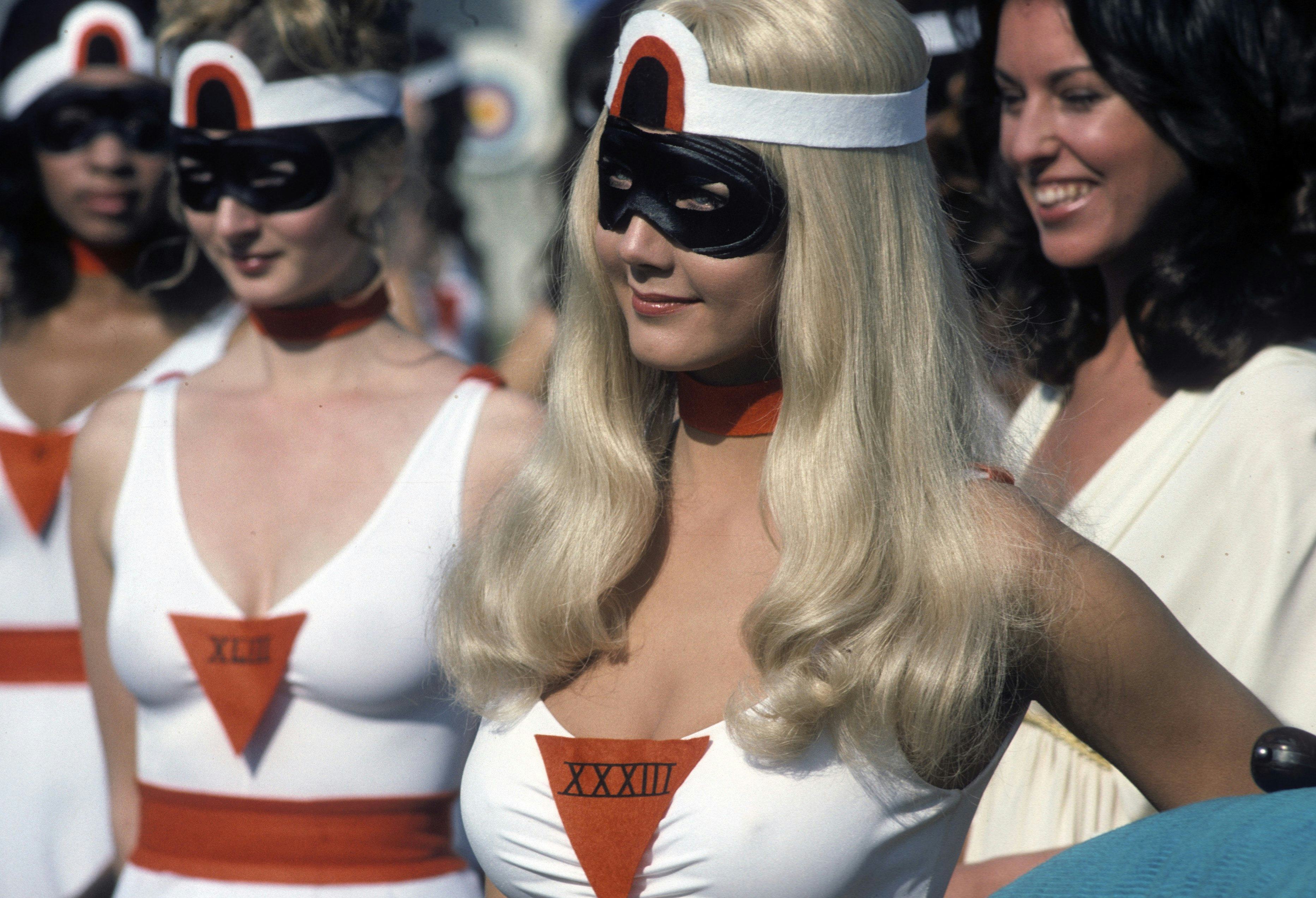
When Christopher Reeve’s Superman hit theaters in 1978, it was a new dawn for DC superheroes. Prior to that moment, TV or film adaptations of DC’s pantheon of heroes were overshadowed by the campy success of the Adam West-led Batman of the 1960s. And so, without Reeve’s performance and director Richard Donner’s commitment to verisimilitude and earnest bravery, DC’s heroes may never have truly stepped into the mainstream. Right?
Wrong. Three years before Superman hit theaters in 1978, and Christopher Reeve made people believe a man could fly, Lynda Carter’s Wonder Woman hit the airwaves with a pilot TV episode, which made everyone believe a woman could fly a transparent airplane. The true mainstreaming of DC superheroes — at least when we talk about live action film and TV — started with the 1975 debut of The New Original Wonder Woman on November 7 on ABC.
Why the “new” and “original” Wonder Woman? Well, even in 1975, the idea of quickly rebooting a superhero after a previous adaptation failed wasn’t entirely unheard of. Just one year before Lynda Carter embodied the classic, bold virtue of Diana Prince, a different TV pilot, simply called Wonder Woman, starred Cathy Lee Crosby and had reimagined the character more like a 1970s spy show. Think low-budget James Bond meets Mrs. Peel from the Avengers. It didn’t click, and a more traditional approach was tried, this time, taking Diana back to her WWII roots, literally giving 1975 viewers a faux-historical adventure show that bizarrely felt more modern than the contemporary version from the previous year. Again, if you think faux-historical nostalgia is an invention of Stranger Things or the new Fantastic Four, think again.
Yes, by its second season, Wonder Woman would move the action to the present day, but in 1975, what made the pilot episode so great was that Diana was fighting Nazis in 1944. And not Nazis on the battlefield, but instead, Nazi spies in America. To be clear, these Nazis are of the Monty Python and Mel Brooks variety; comedian Red Buttons plays Diana’s brief theatrical agent, who is secretly a nervous Nazi spy. Were Nazis a punchline in 1975? The original Wonder Woman pilot suggests a kind of hopeful status quo in which the world we’re living today is thanks to the fact that the Nazis were defeated, and hey, maybe Wonder Woman helped out with that a little bit.

Sticking close to the Golden Age origin story, Diana is a near-immortal Amazonian princess on the secluded Paradise Island. Steve Trevor (Lyle Waggoner) is on his way to take down a lone Nazi plane on a deadly mission when he collides with said adversary and crashes on Paradise Island. The scene in which Steven and the Nazi guy’s planes crash, and they look at each other as they parachute away, is hilariously close to being on the level of the 1960s Batman or a scene from Barbarella. Of course, the Nazi falls into the water and gets eaten by sharks, and of course, Steve lands on Paradise Island and is revived by the Amazons. What ensues is a truly ridiculous plot twist: Diana’s mother, Hippolyta (Cloris Leachman), knows that the Amazons have to send Steve back to America, and all the women of Paradise Island compete in an ad-hoc Olympic-style games to determine which one will get to leave the island and fly Steve home.
Diana is forbidden from entering the contest, but does so anyway with a blonde wig, revealing that one of her greatest superpowers is keeping a really fake wig firmly in place while performing death-defying feats of strength. One of those feats is called the “bullets and the bracelets,” in which two Amazons have to take turns either shooting a gun or being the woman who deflects the bullets. Diana, of course, is the best at this, which sets up the rest of the pilot’s best sequences, in which she deflects bullets with speed and ease, even an old undercover Nazi crone who tries to mow her down with a Tommy gun.
The plot of the pilot of The New Original Wonder Woman is mostly about Diana blowing people’s minds, not just with her outfit, but also with her clear-eyed honesty. When her theatrical agent tries to shoot her while they’re splitting the money from her latest show, she deflects the bullets, but still leaves him his fair share of the earnings. Like Adam West’s Batman, this Wonder Woman won’t even rip off villains. She’s just that honest.
But, unlike West’s Batman, the 1975 Wonder Woman dials down the camp slightly. At first blush, this might seem like an outrageous claim. How can a show with that funky '70s beat, and that outfit, possibly be anything but a farce? This is where Lynda Carter’s performance predicts the style of Reeve’s Superman. While West’s Batman was content to deliver one-liners with utter deadpan, Carter isn’t joking around, not even in a deadpan way. The 1960s Batman was funny because Batman and Robin said funny things in serious ways.

Diana isn’t joking in Wonder Woman, but she’s also not grim or serious. Instead, Carter smartly plays everything like she’s surprised at the absurdity of what humankind has been up to. When confronted with the fact that Steve’s secretary, Marcia, was a Nazi spy all along, Diana is blown away that anyone would be surprised. She shakes her head paternally and says to herself, “I’m going to have to get accustomed to men, and devious women.”
Like episodes of Star Trek in which the enlightened Starfleet people drop into Earth’s past and are just shaking their heads with both disapproval and love, Carter’s Wonder Woman is judgy, but kind. While full of virtue, The New Original Wonder Woman wasn’t preachy, but rather, a superhero show that stated the obvious in a new way: Nazis were bad, telling the truth is preferable, and the only thing that can ever truly save mankind is most certainly womankind.







